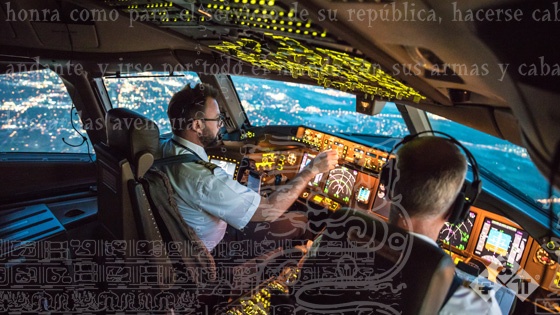March 24, 2016 / by Ciara O'Hanrahan Estimated read time: 5 minutes
How to Be Global and Local

The global marketplace is smaller and better connected than ever before, thanks to advancements in information technology and digital marketing techniques.
Digital Shop Window
Businesses can become global players easily and use their online presence, a.k.a. the digital ‘shop window’, to connect with consumers and B2B clients. We are all accustomed to finding our favorite brands in far-flung cities and towns around the globe. But does this mean we want a brand experience to be the same wherever we go? Probably not.
Go Glocal
Glocalization (a mash-up of globalization and localization) is defined as the practice of conducting business according to both local and global considerations and is an important tactic for managers to consider if they want to increase the chances of international success. Many unfortunate international marketing blunders have happened to both large multinationals and SME's that used slogans, brand names or marketing collateral that made sense in one country and yet in another, through a questionable translation or inadequate cultural understanding, leading to embarrassing or even offensive mistakes.
Anyone for a McArabia?
McDonald’s, the ubiquitous global brand example, offers the Maharaja Mac through its golden arches in India, the McArabia in Saudi Arabia and cremoso al panettone for dessert in Italy. Obviously, not every business is going to have the budget or the need to adapt their product or service range to this extent but if you want to have an effective presence around the world, sensitivity to local markets is very necessary! Plus, you can glocalize your brand through smaller steps like ensuring your website is fully localized and marketing content has either been transcreated or at least professionally translated. Read our e-book on effective Global Content Strategies here:
Global-Conscious Branding Matters
It is always tempting to try and save money but when dealing with the localization of globalized products or services, the translation you use should never be "bargain" translation. Sure, you could run your branding campaign copy through online translation apps and software. It certainly would give a direct translation but the chance that online or automatic translators are going to mistranslate nuances and colloquialisms is high, leaving you open to missing this crucial part of interacting with local markets around the world.
For example, imagine the classic branding campaign of Nike's "Just Do It" being run through a translator online. If you are trying to reach a Scandinavian market you may get, "Bare gjør det", which does not carry the needed nuance of Nike's branding slogan. A professional translation service can help ensure that local idioms, maxims and colloquialisms are recognized and implemented into the branding strategy. This of course, reaches more people and helps to bring the brand an internationally recognized status which is of course the desired outcome.
Lost in Translation
Several examples of unsuccessful international branding campaigns have happened to very big and recognizable companies that failed to recognize the importance of having a professional service which has eyes on the local level details. Some are urban myths, such as the Coors example where the company apparently used the slogan, "Keep it Loose" which sounded great to American markets, but when translated for the Mexican markets ended up being a little off target... Still, real global branding fails do happen and serve as a caution to be vigilant when building your global brand.
Reach Foreign Audiences with a Consistent Message
Consumers today are more informed, more aware of their choices, and more discerning, so much so that a global content strategy is of the utmost importance if you want your brand to be globally successful. Consider your local target audiences and provide solutions that appeal to their needs. Create professionally localized content that is mindful of local idioms, current slang, and social and linguistic trends and seamlessly integrates into the local market. Be smart and appeal to the local individual on a global scale.

Written by Ciara O'Hanrahan
Ciara serves on the Account Management and Digital Marketing teams at SimulTrans. She works with clients in Ireland, France and Benelux from the very beginning of their localization journey to help them achieve their global business goals. As the initial point of contact for clients, she liaises with the internal engineering and project management teams at SimulTrans to make sure each project is a success and that clients get their desired end-result. Ciara holds an Honours Bachelor's degree in French and Italian from Trinity College, Dublin and an MSc in Management from the UCD Michael Smurfit Graduate Business School.



